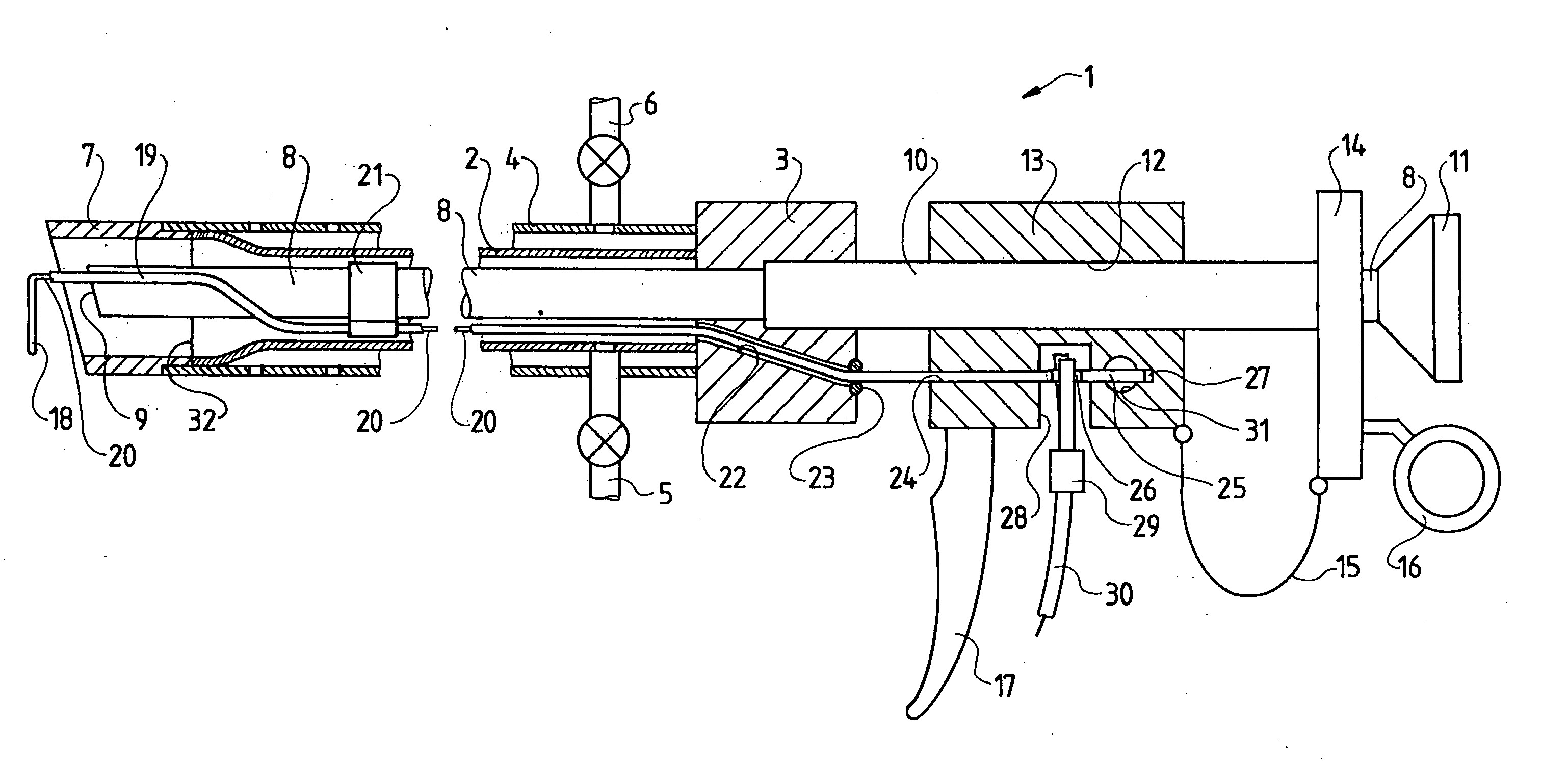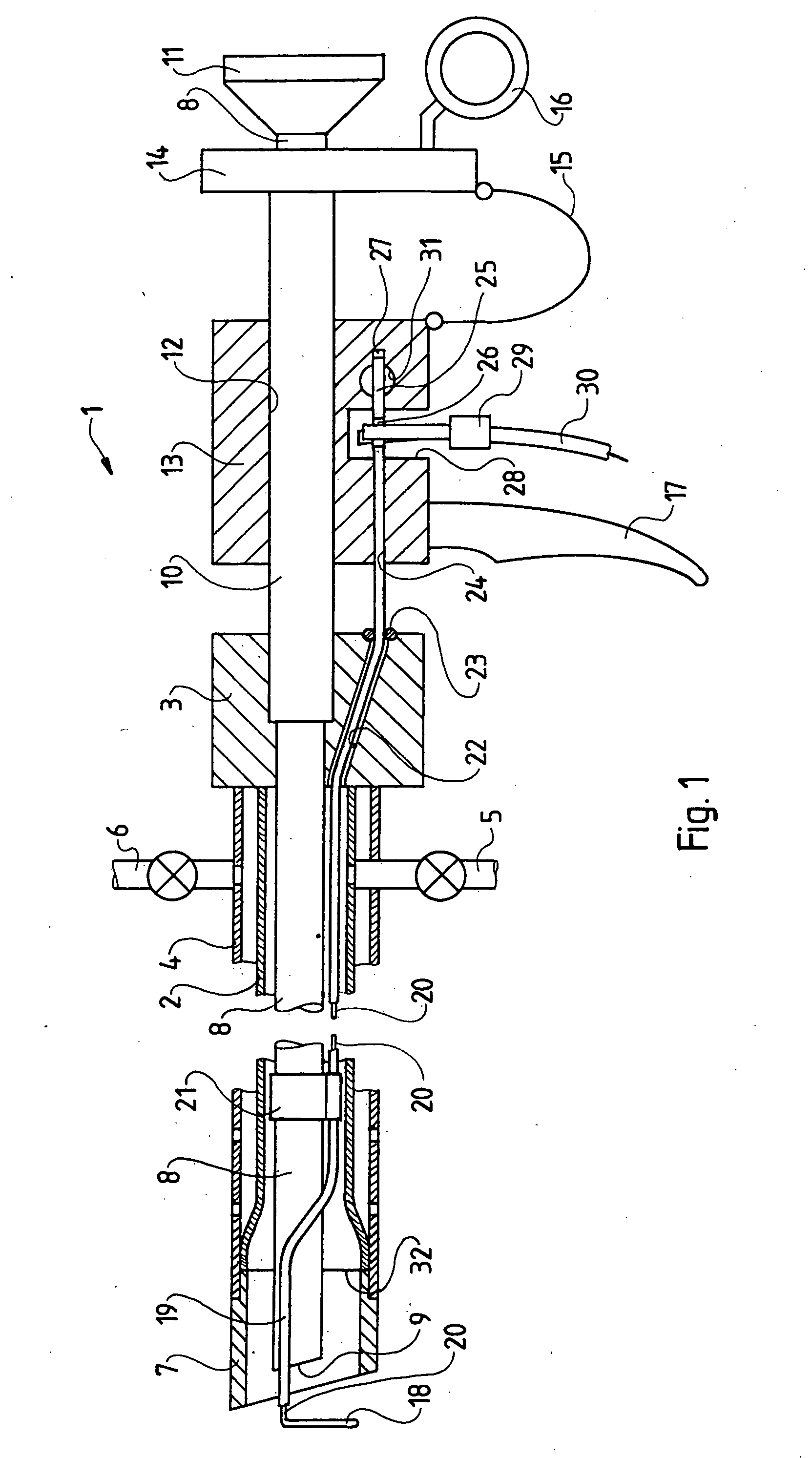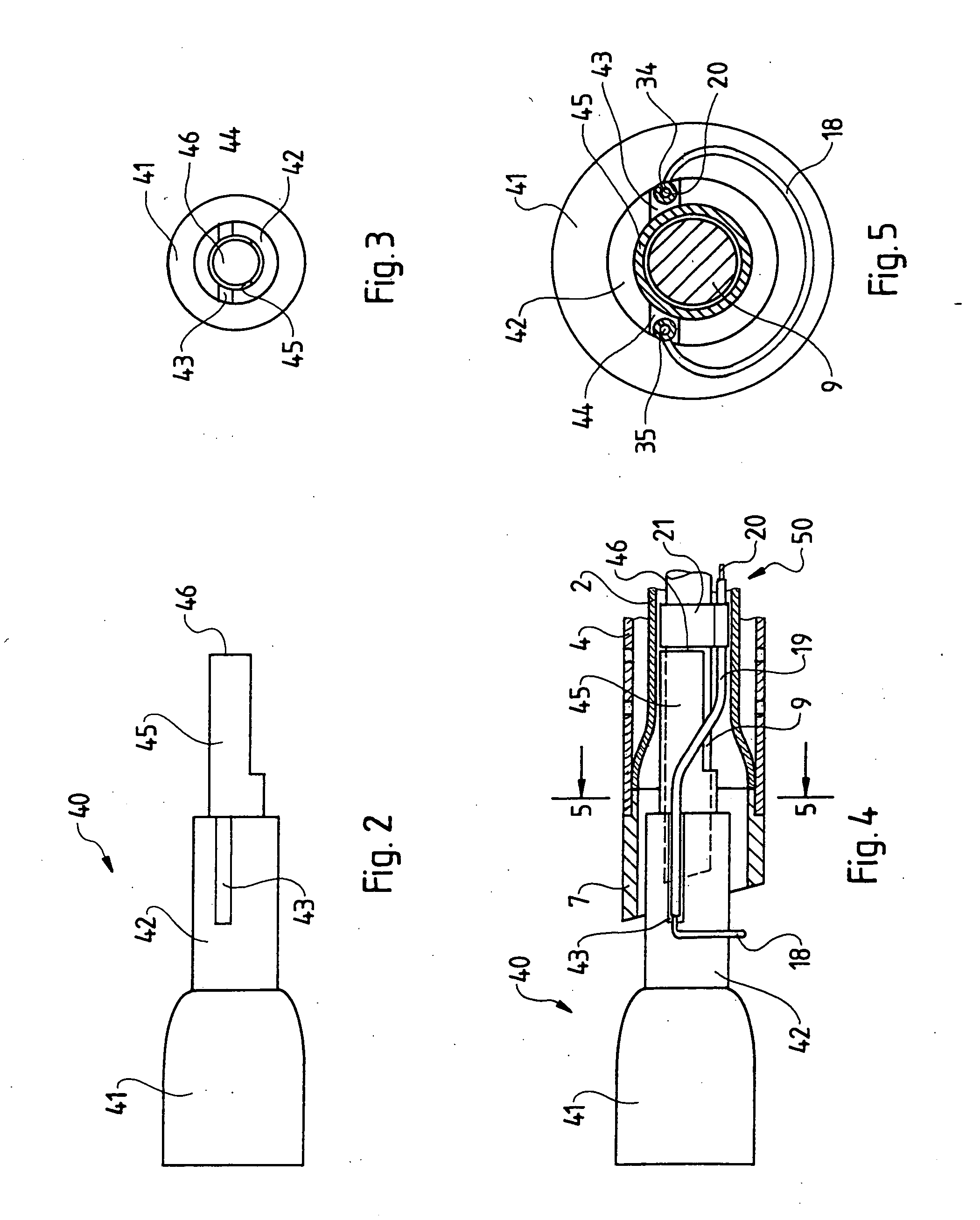Working instrument with handle element for use in a resectoscope, and handle element for a working instrument
a technology of working instruments and handle elements, which is applied in the direction of surgical instruments for heating, medical science, surgical forceps, etc., can solve the problems of not having particularly good handling features in the direction of working instruments to be held, risk of damaging the working instruments, etc., and achieve the effect of safe and effective force transmission and application
- Summary
- Abstract
- Description
- Claims
- Application Information
AI Technical Summary
Benefits of technology
Problems solved by technology
Method used
Image
Examples
second embodiment
[0051] Following the insertion of the working instrument 50 into the resectoscope 1, the handle element 40 can be removed by simple pulling. However, the handle element 40 could also be firmly connected to the working instrument 50, e.g. by means of a glue connection between the tip area 45 and the forking site 47. In this case, the glue connection would have to be provided such that it is severed upon the application of a certain force, e.g. a pulling force. However, the separation should occur such that no fragments or sharp edges stay behind.
third embodiment
[0052] And finally, the handle element 40 of FIG. 7 shows a It is provided for a different working instrument 50, namely one with a cutting knife 36 as its working device. For this purpose, the tip area 45 of the handle element 40 is provided as a tube, the upper side of which comprises an axial slit 48, which receives the cutting knife 36 when the arrangement is pushed onto the working instrument 50. This form-fitting engagement between the handle element 40 and the working device 36 provides for the coupling of any rotation of the handle element 40 and working instrument 50. In addition, the internal diameter of the tube 45 can be selected such that the support 19 of the working instrument 50 is received in a clamping fashion. For this purpose, a narrow site can be provided for example. This provides for the handle element and the working instrument 50 to be connected to each other in a non-positive fashion in an axial direction also.
[0053] The handle element 40 of FIG. 7 can be ...
PUM
 Login to View More
Login to View More Abstract
Description
Claims
Application Information
 Login to View More
Login to View More - R&D
- Intellectual Property
- Life Sciences
- Materials
- Tech Scout
- Unparalleled Data Quality
- Higher Quality Content
- 60% Fewer Hallucinations
Browse by: Latest US Patents, China's latest patents, Technical Efficacy Thesaurus, Application Domain, Technology Topic, Popular Technical Reports.
© 2025 PatSnap. All rights reserved.Legal|Privacy policy|Modern Slavery Act Transparency Statement|Sitemap|About US| Contact US: help@patsnap.com



